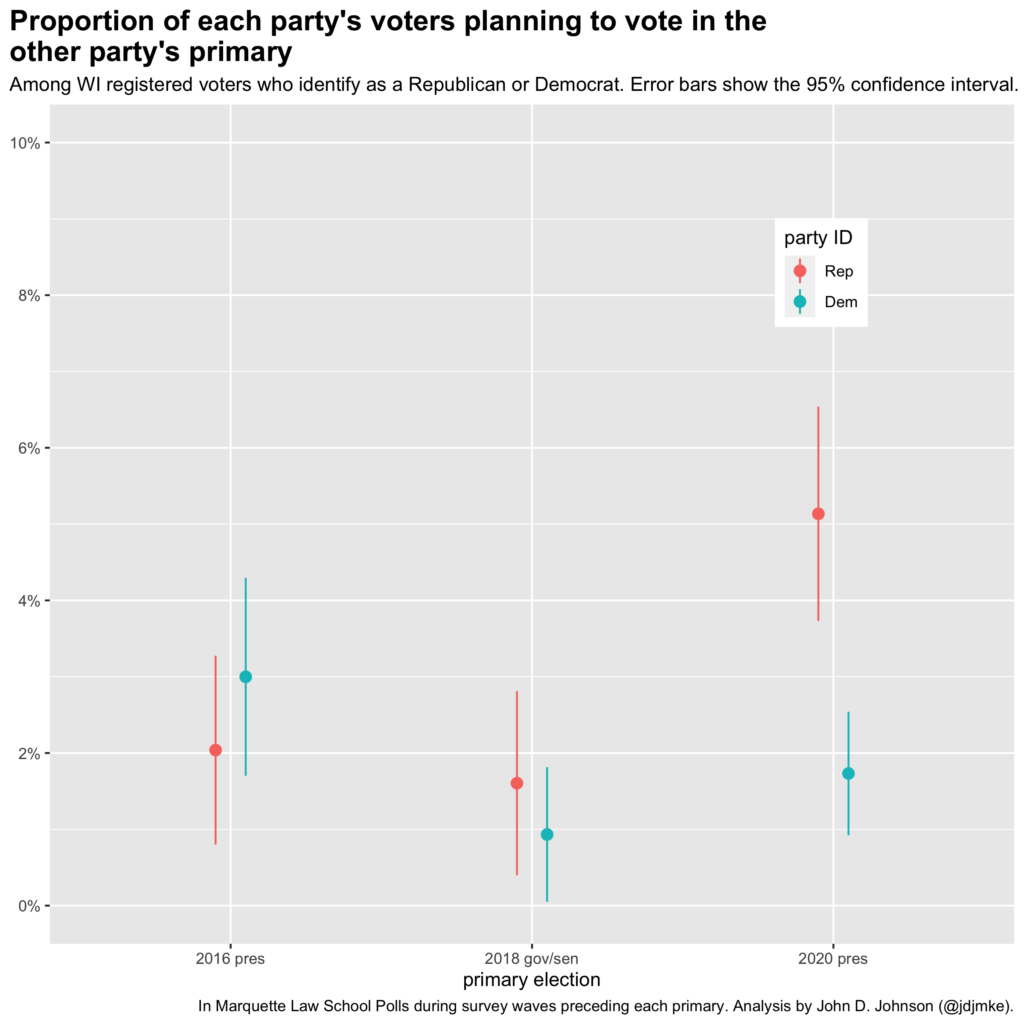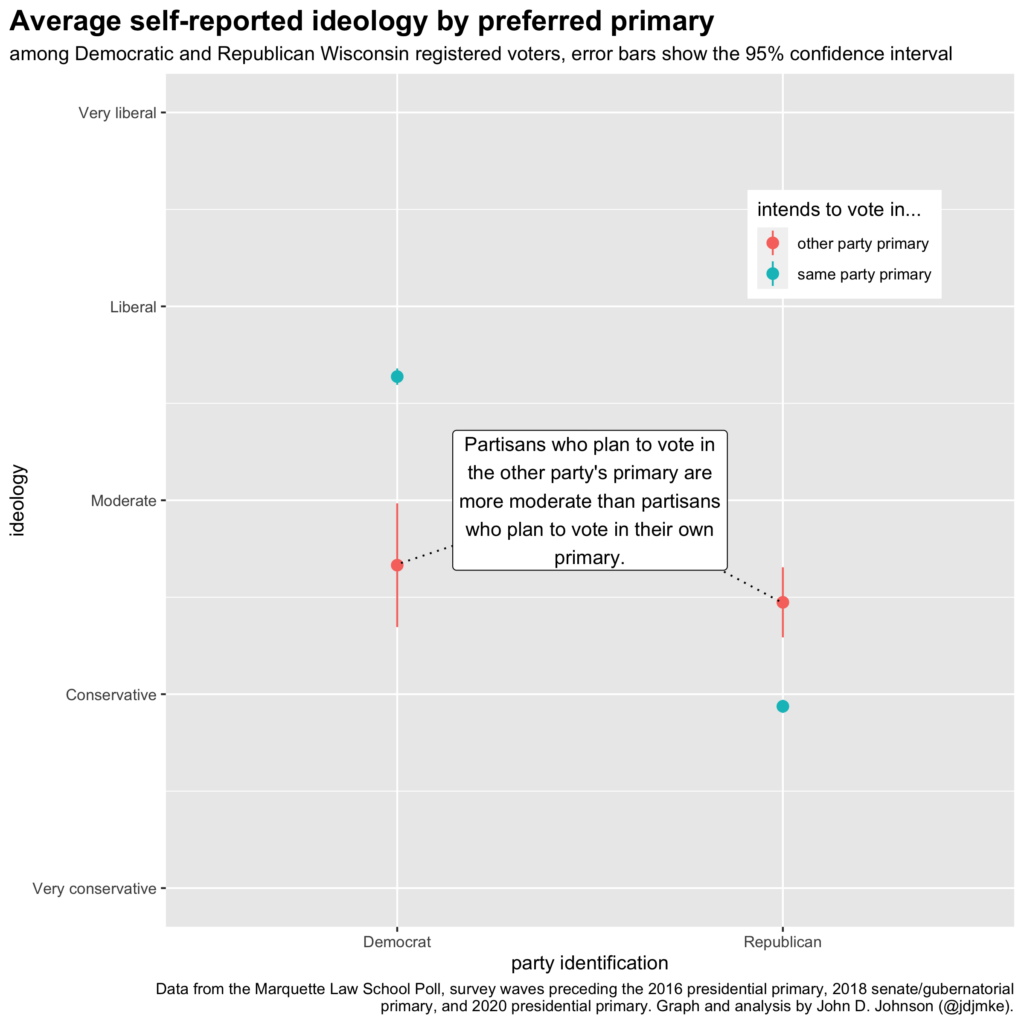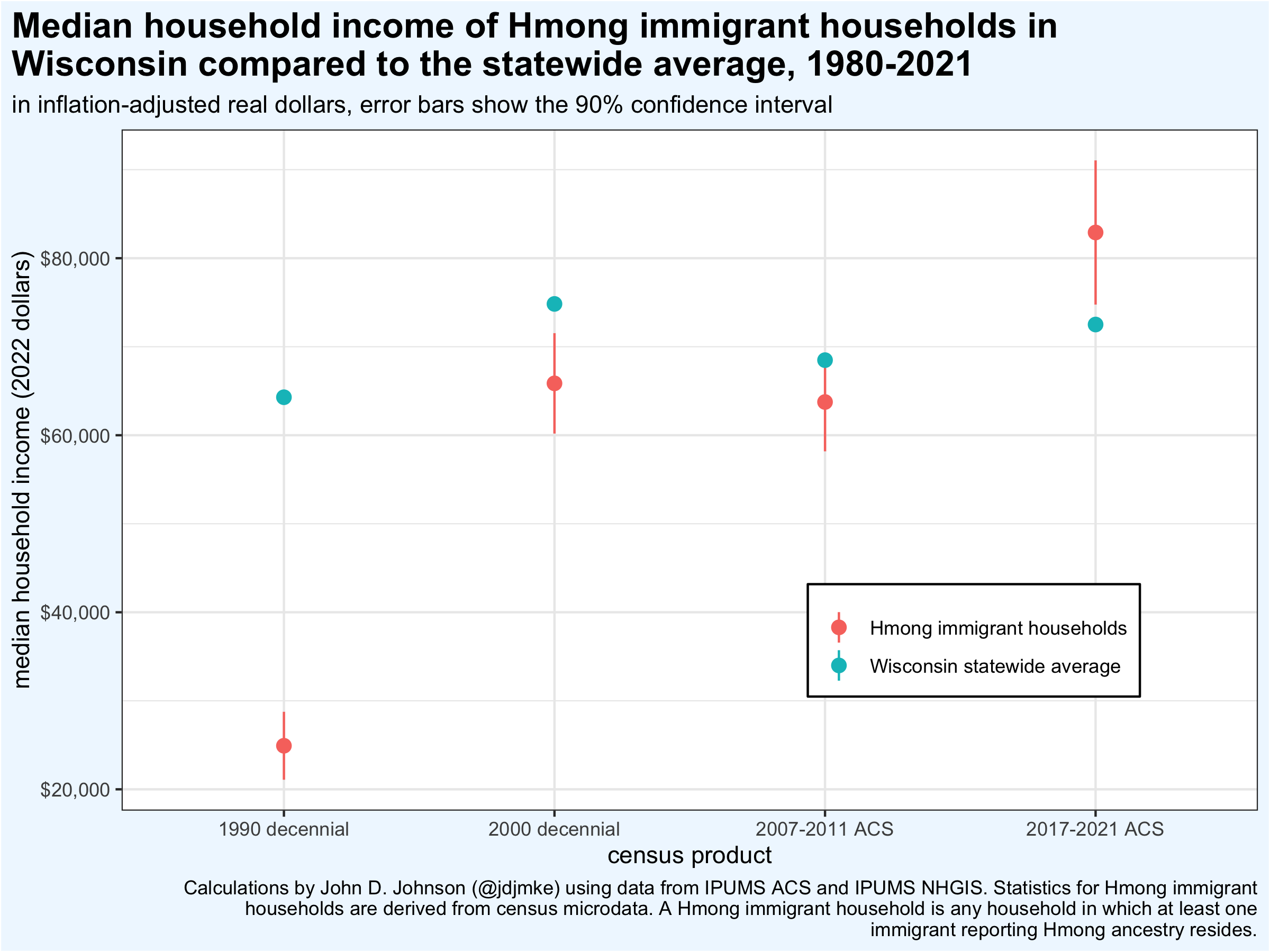Crossover voting is uncommon, even in Wisconsin’s wide-open primaries
In some states, only officially registered members are allowed to vote in a party’s primary. Not so in Wisconsin, which lacks any kind of party registration and where voters can choose to cast a ballot in whichever primary they please. They must pick only one, but all the party primaries—Republican, Democratic, Libertarian, Green, etc.—are all printed on a single ballot.
The main argument for closed primaries is that they prevent crossover voting, particularly party raiding. Party raiding refers to members of a different party disingenuously casting ballots in another party’s primary, thereby thwarting the will of the target party’s actual members.
Despite these fears, existing research shows that crossover voting is uncommon. When it does happen, it’s usually “simply because [crossover voters] prefer those candidates to the candidates offered in their own party’s primary, or they view their own party primary as a foregone conclusion and want the best possible set of candidates to choose from in the general election.” Deliberate party raiding, almost never matters.
Wisconsin is a good place to measure crossover voting, since our election system offers no obstacles to voters doing this. Data from the Marquette Law School Poll is consistent with the existing research showing little-to-no meaningful amount of crossover voting. I last wrote about this in 2019. Here is an update.
Because there are so few crossover voters, I pooled several survey waves preceding each election to calculate the following statistics. I don’t include statistics from the 2022 primary because we didn’t intended primary participation in a comparable way.
The April 2016 primary vote in Wisconsin was still contested among both Democratic and Republican presidential hopefuls. In surveys leading up to that election, about 2% of self-identified Republicans and 3% of Democrats told us they planned to vote in the other party’s primary.
Similarly, the 2018 August partisan primary featured a competitive gubernatorial contest between Democrats and a contested Senate primary among Republicans. Less than 2% of the self-reported members of either party planned to crossover to the other party’s primary.
In both 2016 and 2018, the shares of each party planning to vote in the other primary were statistically indiscernible. That’s not true of 2020, when clearly more Republicans voted in the Democratic presidential primary than vice versa. This isn’t surprising, given that the Democratic presidential primary was competitive, while the Republican primary to renominate incumbent Donald Trump was a formality.
Across the six survey waves we fielded preceding the 2020 primary, we found that about 5% of Republicans planned to vote in the Democratic primary, compared to just 2% of Democrats planning to vote in the Republican primary.

It would be a mistake to assume that these crossover voters are engaging in strategic “party raiding.” It’s more likely that the small numbers of voters who identify with one party but choose to switch primaries are expressing a sincere preference between the other party’s candidates.
In the graph below, I’ve pooled the responses across all three primaries, 2016, 2018, and 2020. For both Democrats and Republicans, I calculate their average self-described ideology on a scale of 1 to 5, where 1 is “very conservative” and 5 is “very liberal.”
Democrats who plan to vote in the Republican party are noticeably more conservative than Democrats who are staying in their own primary. Likewise, Republicans crossing to the Democratic party are less conservative than Republicans staying in their own primary.
The average self-reported ideology of Republican and Democratic primary crossover voters are so similar to each other that they are statistically indistinguishable in this sample.

In 2020, slightly more Republicans intended to be crossover voters than Democrats, presumably because the Democratic presidential primary was more interesting. Depending on the outcomes from the first series of state primaries, the situation may be reversed in 2024.

